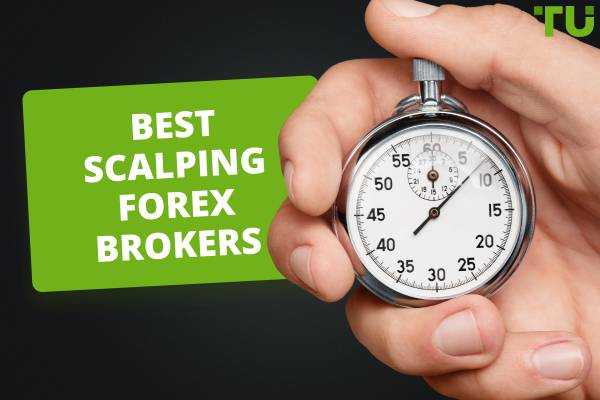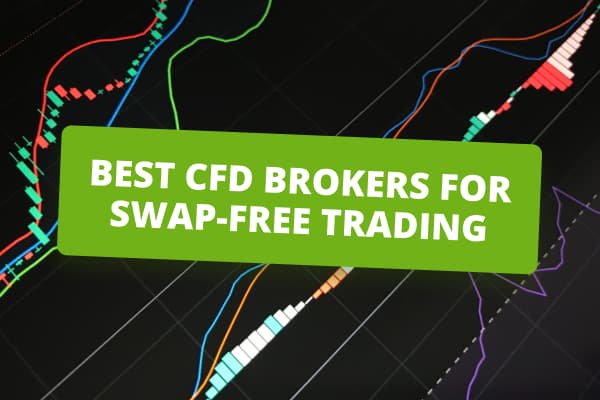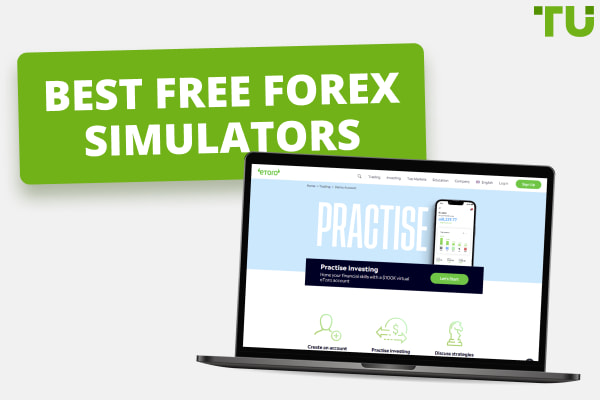Best No Dealing Desk Brokers 2025

The best NDD Forex broker - Bybit
Top NDD Forex Brokers:
-
Bybit - A global cryptocurrency exchange offering Forex and CFD trading through the MetaTrader 5 platform, with leverage of up to 1:500.
-
XM Group - Best Order Execution (99.35% of orders are executed nearly instantly)
-
RoboForex - Best Forex broker for beginners ($10 min. deposit, copy trading)
-
Exness - Best raw spread account (avg. spread for major FX pairs 0.1-0.2 pips)
-
VT Markets - Attractive Forex bonuses (50% welcome bonus, 20% deposit bonus)
-
TeleTrade - Best for learning trading basics (a lot of educational and analytical materials)
In the dynamic landscape of Forex trading, selecting the right broker is paramount for success. The advent of Non-Dealing Desk (NDD) brokers has revolutionized the industry, offering traders direct access to the interbank market without intermediary intervention. As we delve into the intricacies of NDD brokerage, our TU experts aim to unravel the pros and cons of these brokers in 2025.
Best NDD brokers in the world
Bybit
Bybit is one of the world’s largest cryptocurrency exchanges. In 2024, it expanded into Forex trading through the MetaTrader 5 (MT5) platform. Users can trade over 100 contracts, including currency pairs, metals, oil, indices, and other commodities. Trading is offered with fixed leverage of up to 1:500 and commissions ranging from $3 to $6 per lot. The platform supports both hedging strategies and Expert Advisors (EAs). Bybit is regulated by the Astana Financial Services Authority (AFSA) in Kazakhstan, holds a preliminary license from the Virtual Assets Regulatory Authority (VARA) in Dubai and secures MiCAR license from Austria’s Financial Market Authority (FMA).
👍 Pros
• Access to Forex and CFDs without the need for third-party broker verification;
• Support for trading via mobile and desktop MT5 versions;
• Leverage up to 1:500 on most contracts;
• Transparent commission and spread calculation system;
• ECN model with ultra-tight spreads and fixed lot-based commissions;
• No minimum deposit requirements;
• Free demo account for virtual trading.
👎 Cons
• No multi-currency accounts;
• Limited passive income options in the Forex market.
XM Group
XM Group is a globally recognized broker, operational in nearly 190 countries and serving over 15 million traders. In 2025, the company is celebrating its 15th anniversary. The broker offers over 1,400 trading instruments, including Forex pairs, stocks, commodities, cryptocurrencies, and precious metals. With licenses from regulators like FSC and CySEC, XM ensures a secure trading environment.
The company is committed to high-speed order execution without requotes, ensuring 99.35% of trades are completed nearly instantly. The broker's leverage varies by region, offering up to 1:1000 for some non-EU countries while maintaining strict compliance with European standards for others. The spreads start from 0.6 pips.
XM doesn't offer passive investment options like PAMM accounts but provides access to MQL5 copy trading and a VPS for algorithmic trading.
👍 Pros
• XM Broker guarantees 100% execution of orders, 99,35% of orders delivered nearly instantly. No requotes guaranteed;
• no “markup” on narrow market spreads (broker's margins over the spread);
• over 1,000 trading instruments. Available for trading are: 57 currency pairs, including CFDs on cross rates, metals (including palladium and platinum), commodities (cocoa, cotton, grain), stocks;
• no commission for replenishment and withdrawal of money. XM Broker incurs all commission costs of payment systems;
• around the clock support for 5 days a week in more than 30 languages.
👎 Cons
• expanding their limited choice of trading platforms. Despite the fact that the broker offers 16 terminals, all of them are modifications of MT4 and MT5 for desktop, browser and mobile trading.
RoboForex
RoboForex is a well-established brokerage company offering a broad spectrum of trading opportunities for active traders and investors alike. With an impressive selection of over 12,000 financial instruments - including currency pairs, CFDs on stocks, indices, metals, energies, and futures - RoboForex provides a versatile trading environment.
The broker boasts competitive trading conditions: tight spreads starting from 0 pips, high leverage up to 1:2000, and fast execution speeds. The broker also offers the CopyFx investment program, which allows traders to copy the strategies of successful investors and earn passive income. Additional perks include instant fund withdrawals and some of the industry’s highest affiliate payments (up to 84%).
RoboForex prioritizes reliability and client satisfaction, establishing itself as a trusted partner for traders worldwide.
👍 Pros
• Availability of favorable trading conditions and a minimum deposit
• Unique investment program CopyFx
• Highest affiliate payments: up to 84% of the fee paid by the referral
• Market launch - STP and ECN
• Instant withdrawal of funds
• Minimum deposit - $10
👎 Cons
• A small number of currency pairs - 28, for accounts: Pro, Pro-Cent, ECN
Exness
Exness is one of the world’s largest brokers, known for its competitive trading conditions, high security, and wide selection of assets. The company serves over 1 million active clients and processes a monthly volume exceeding $4 trillion.
While specializing in currency pairs, Exness also offers CFDs on stocks, commodities, indices, and cryptocurrencies. The broker caters to all experience levels with various account types – from cent accounts and social trading for beginners to high leverage and Expert Advisor support for seasoned professionals.
Exness holds multiple international licenses, including the stringent FCA and CySEC, ensuring trader funds are protected.
With features like 24/7 support, fast withdrawals, and analytics tools, Exness strives to provide an optimal trading experience.
👍 Pros
• Availability of 8 licenses and a membership in the Financial Commission providing up to EUR 20,000 insurance coverage per client in the event of a force majeure;
• Wide choice of account types — Standard, Standard Cent, Pro, Zero and Raw Spread;
• Wide range of CFDs, including over 100 currency pairs;
• Zero deposit and withdrawal fees (Depends on the payment system);
• Proprietary platforms for active and social trading, as well as all versions of classic MT4 and MT5.
👎 Cons
• The broker’s website offers almost no educational materials;
• 24/7 support isn’t available in all languages.
VT Markets
VT Markets, established in 2015, is a globally authorized broker that offers traders access to a diverse portfolio of financial assets, including forex, indices, energy, precious metals, soft commodities, and ETF-based CFDs. The broker provides affordable prices and a choice of account options to accommodate a wide range of trading needs
👍 Pros
• Financially stable parent company and reliable custodian bank.
• Over 230 assets of different classes are available for trading.
• It allows trading using STP, ECN, and Islamic accounts.
• A wide range of investment solutions from reputable third-party platforms.
• Margin trading with leverage up to 1:500 for cryptocurrency pairs.
• Average trading commissions on ECN and precise market spreads on all account types.
• Access to making trades in desktop and mobile terminals MetaTrader 4/5, as well as in the web version of MT4.
👎 Cons
• The high minimum deposit for novice traders is $50.
• Lack of access to micro (cent) accounts.
• The list of available assets does not include cryptocurrencies and ETFs.
TeleTrade
TeleTrade is a global broker serving clients worldwide. They offer trading on Forex, indices, stocks, metals,cryptocurrencies, and energies. While lacking PAMM accounts and certain investment options, TeleTrade boasts a robust copy trading service, a strong affiliate program, and diverse account types (ECN, NDD, crypto). With sufficient leverage (up to 1:500) and spreads from 0 pips, the broker caters to various trading styles, including scalping, intraday trading, and medium to long-term strategies.
TeleTrade supports traders with market analytics, expert forecasts, an economic calendar, and a comprehensive education section on their website.
👍 Pros
• detailed analytical section;
• informative educational section.
👎 Cons
• no PAMM accounts or other money management options;
• a small range of trading instruments;
• few withdrawal options;
• support is available 24/5;
• withdrawals delayed;
• technical support responds slowly;
• sometimes it takes a long time to verify data.
Pocket Option
PO TRADE BROKER caters to both Forex and binary options traders, offering a wide range of trading instruments, a copy trading service, and passive income opportunities.
Clients can trade CFDs on currencies, cryptocurrencies, stocks, indices, and commodities with spreads starting from 1.2 pips and no additional commissions per lot. Pocket Option's unique "My Safe" service offers up to 10% annual interest on unused account balances.
While the platform excels in serving active traders, its demo accounts and referral program also offer value to beginners. However, the lack of cent accounts and ECN options could be a drawback for certain professional traders.
👍 Pros
• MetaTrader provides for trading binary options and CFDs;
• A demo mode is available for all account types;
• Active, social, and algorithmic trading is available on MT4 and MT5 accounts;
• Spreads are from 1.2 pips for Forex and no fees per lot;
• Referral program for retail clients with rewards of up to 50%-80% of the referee’s income;
• “My Safe” service that provides for crediting 10% per annum on the account balance not involved in trading;
• Cash back and promo codes for binary option traders;
• 50% deposit bonus.
👎 Cons
• Real-time communication with operators is available upon funding the account.
Markets4you
Forex4you (Markets4you) caters to a wide range of traders, offering different account types, including cent accounts and ECN accounts with tight spreads from 0.1 pips. The broker provides leverage of up to 1:2000, order execution speed from 0.1 sec, and access to over 150 trading instruments, including Forex pairs, indices, commodities, and stocks. Its proprietary copy trading platform, Share4you, allows traders to earn additional income by sharing their strategies or copying successful traders. Additional features like cashback, bonuses, and partnership programs further enhance the trading experience.
Markets4you doesn't accept clients from the U.S., Canada, Japan, and EU countries, but it presents a compelling option for eligible traders seeking a well-rounded trading experience.
👍 Pros
• best trading conditions for novice traders;
• no trading restrictions on scalping and algorithmic trading;
• the possibility of passive income - social trading platform Share4you;
• the broker has an insurance for $10 million on a contingency basis;
• there are cent accounts with a minimum transaction amount of 2 cents.
• customer support responds to customer inquiries within 8 hours, even on weekends.
👎 Cons
• Relatively high fixed fees on Pro accounts.
• Traders from the U.S, Canada, Japan, and EU countries cannot use services of the broker.
Vantage Markets
Vantage Markets is a multi-asset broker offering a vast array of 1,000+ trading instruments, including currency pairs, CFDs on stocks, indices, commodities, energy, and ETFs. Holding licenses from reputable regulators like the FCA and ASIC, Vantage Markets ensures a level of security and trust for its clients.
The broker provides a choice between spread-based and commission-based account types, with leverage up to 1:500 on Forex pairs. Its PRO ECN option particularly stands out with commission starting from $1.5 per lot, making it attractive for high-volume traders.
Alongside the popular MetaTrader 4/5 platforms, the broker offers proprietary trading platform ProTrader and a convenient Vantage App. Additionally, Vantage Markets integrates with TradingView, enabling direct trading from the popular charting platform.
👍 Pros
• A vast array of trading instruments like 1000+ currency pairs and contracts for difference (CFDs).
• The broker has licenses from four reputable regulators.
• Classic trading terminals and a proprietary mobile application.
• An extensive array of trading signals to choose from for traders, regardless of the type of trading account.
👎 Cons
• Customers from most countries are forced to cooperate with a branch that has an offshore license.
• Limited training and a lack of information on Forex trading.
• Snail-paced withdrawal of funds with the requirement to comply with special conditions.
FxPro
FxPro is a well-established broker offering traders access to over 2,100 financial instruments across multiple asset classes, including Forex, stocks, commodities, indices, and cryptocurrencies. It is regulated by reputable authorities – FCA, CySEC and others.
The broker stands out with its focus on technology and offers an average order execution speed of 14-30 ms, setting a market benchmark. FxPro also provides an impressive suite of trading tools and educational resources, such as Trading Central analytics. The minimum deposit of $100, however, is higher than some competitors.
With a company capital exceeding 100 million euro, and a track record of reliability, FxPro stands out as a top-tier choice for traders looking for a secure and dynamic trading environment.
👍 Pros
• Negative Balance Protection of a client on a real account is a unique broker service. It has an automated transaction monitoring and a risk management system, the capital is guaranteed not to go into a negative balance;
• insurance of client funds at the expense of the broker participation in an investor compensation fund;
• beginner traders will be able to access tested advisors;
• a full package of services is available to the client regardless of the balance of his account;
• VIP account holders are offered a personal manager and get a Free VPS;
• company capital exceeds 100 million euros;
• offers swap-free accounts for customers whose religious beliefs do not permit swapping eg. Islamic traders;
• the reliable trading environment provided by the competent educational and research department.
👎 Cons
• it is not the best choice for beginner traders who are looking for their first broker as the minimum deposit of $100 is considered high;
• difficulties registering in an affiliate program.
Comparison of the Best NDD brokers
| Broker | Minimum Deposit | Spead | Tradable Instruments | |
|---|---|---|---|---|
|
No |
0 points |
Forex, cryptocurrencies, CFDs on indices and commodities |
|
|
|
$5 |
0.8 points |
Forex,and CFDs on Stocks, Commodities, Equity Indices, Precious Metals, Energies, Cryptocurrencies, Turbo Stocks, Shares, Thematic Indices - these might differ between the XM entities |
|
|
|
$10 |
0 points |
Forex (currency pairs), ETFs, index CFDs, oil CFDs, CFD on European and U.S. stocks, real securities |
|
|
|
$10 (Depends on the payment system and account type) |
0 points |
CFDs on: forex, cryptos, commodities, indices, and stocks |
|
|
|
$50-500 |
0 points |
Currency pairs, CFDs on US and Hong Kong stocks, indices, commodities, energy resources, ETFs, bonds, and precious metals |
|
|
|
USD 10 |
0.2 points |
Forex, metals, indices, energies, stocks, cryptocurrencies |
|
|
|
$5 |
1.2 point |
Binary options and CFDs on currency pairs, cryptos, indices, stocks, and commodities |
|
|
|
From 0 USD |
0.1 points |
currency pairs, CFDs on stocks, stock indices, metals, and energies |
|
|
|
$50 |
0 points |
Currency pairs (57), CFDs on stocks (226), indices (26), and commodities (22), energy, ETFs, bonds, share SFDs |
|
|
|
100 (USD, EUR, GBP, CHF) |
0 points |
Over 2,100 assets are available: currencies, stocks, indices, futures, metals, energies, and cryptocurrencies. |
|
What is a non dealing broker?
In the world of Forex trading, there are two main types of brokers: Non-Dealing Desk (NDD) brokers and Dealing Desk brokers. NDD brokers don't have their own dealing desk; instead, they connect you directly with major players in the Forex market, like banks and financial institutions. This means you're trading with these big players, not with the broker itself. NDD brokers offer advantages like access to the interbank market, where prices are better, and instantly executable rates through electronic communication networks (ECNs).
They also provide transparency by showing you the exact spread available in the interbank market. However, NDD brokers may have wider spreads and charge commissions or fees, potentially making trades more expensive. On the other hand, Dealing Desk brokers act as intermediaries and may offer tighter spreads and lower fees, but they can manipulate prices. So, it's important to weigh the pros and cons to choose the type of broker that suits your trading needs best.
How to choose the best non dealing broker?
| Tips | Details |
|---|---|
|
Regulation Matters |
Choose brokers regulated by reputable authorities like FCA, CySEC, or ASIC to ensure they adhere to strict standards, protecting your funds and interests. |
|
Execution Model |
Understand whether the broker operates as a Non-Dealing Desk (NDD) or a Dealing Desk (DD). NDD brokers offer direct market access, ensuring transparent and fair order execution, while DD brokers may act as counterparties, potentially leading to conflicts of interest. |
|
Spreads and |
Compare the spreads and trading commissions offered by different brokers. NDD brokers typically offer competitive spreads due to direct access to the market, but it's important to ensure these align with your trading strategy and budget. |
|
Platform and |
Evaluate the broker's trading platform for its user-friendliness, reliability, and availability of essential tools such as charting, technical analysis, and risk management features. Testing the platform through a demo account allows you to assess its suitability before committing real funds. |
|
Customer Support |
Consider the quality of customer support provided by the broker. Responsive and knowledgeable support can be crucial during critical moments. Verify that the broker offers timely assistance through various channels like live chat, email, or phone to address your queries and concerns effectively. |
How does a no dealing desk (NDD) broker operate?
A No Dealing Desk (NDD) broker functions as a facilitator, connecting traders directly to the interbank market for trade execution. Here's how it works:
Firstly, traders place their orders through the NDD broker's platform, specifying the instrument, volume, and execution price. The broker then accesses multiple liquidity providers, including prime brokers and ECNs, to find the best bid and ask prices in real-time. Once the most favorable price is identified, the order is routed directly to the chosen liquidity provider for execution.
This process ensures transparency, as traders can see the actual market prices. Moreover, NDD brokers don't profit from traders' losses directly, operating instead on commissions or wider spreads. Execution is typically faster due to electronic order routing.
However, it's essential to consider factors like minimum trade size and fee structures (commissions vs. spreads), as well as the potential impact of market volatility on spreads. While NDD brokers offer transparent and potentially lower-cost trading, beginners should be aware of the commission structure and possible learning curve.
Differences between DD brokers and NDD broker
| Aspect | Dealing Desk (DD) Brokers | No Dealing Desk (NDD) Brokers |
|---|---|---|
|
Execution Speed |
Slower due to internal matching of trades by the broker. |
Faster as trades are directly routed to liquidity providers. |
|
Requotes |
May issue requotes, leading to delays and frustrations. |
Typically execute orders without requotes, providing smoother trading experiences. |
|
Slippage |
More prone to slippage due to order processing delays. |
Slippage minimized as orders are executed directly in the market. |
|
Trading Costs |
Often offer fixed spreads, potentially resulting in higher costs. |
May charge a commission or offer variable spreads with potentially tighter spreads. |
|
Market Access |
Provide access to a market created by the broker. |
Offer direct access to the interbank Forex market, with deeper liquidity. |
|
Suitability |
Suited for traders seeking simplicity, less concerned about transparency. |
Preferred by traders valuing transparency, faster execution, and direct market access. |
Pros & Cons of NDD trading
👍 Pros of NDD Trading
• Transparency: NDD brokers provide direct access to the interbank market, ensuring traders can see real-time prices and execution without any interference.
• Tight Spreads: NDD execution typically results in tighter bid-ask spreads, which helps reduce trading costs for traders.
• No Conflict of Interest: NDD brokers don't trade against their clients, eliminating any potential conflict of interest. They earn revenue through commissions or spreads.
• Fast Execution: Orders are executed swiftly due to direct access to liquidity providers, ensuring timely execution of trades.
• Access to Depth of Market (DOM): Traders have access to the order book and market depth, enabling them to make informed trading decisions.
👎 Cons of NDD Trading
• Commission Fees: NDD brokers charge commissions on trades, which can accumulate over time and add to trading costs.
• Market Volatility: Spreads may widen during periods of high volatility, affecting the quality of trade execution.
• Lack of Fixed Spreads: Unlike market maker brokers, NDD brokers don't offer fixed spreads, which may be a disadvantage for traders who prefer predictability.
• Limited Order Types: NDD execution may not support certain order types, such as guaranteed stop-loss orders, limiting traders' flexibility.
Expert opinion
In the domain of Forex trading, choosing the right broker is crucial. Non-Dealing Desk (NDD) brokers, like RoboForex, IC Markets, and others, offer direct access to the interbank market, ensuring transparency and fair execution of trades.
While NDD brokers provide faster execution and tighter spreads, they may charge commissions and face wider spreads during volatile market conditions. Beginners should prioritize user-friendly platforms and educational resources.
Regulatory compliance, execution model, and trading costs should be considered when selecting the best NDD broker. Ultimately, it's about finding a balance between transparency, costs, and trading preferences to make informed decisions in your trading journey.
Methodology for compiling our ratings
Traders Union applies a rigorous methodology to evaluate brokers using over 100 both quantitative and qualitative criteria. Multiple parameters are given individual scores that feed into an overall rating.
Key aspects of the assessment include:
-
Regulation and safety. Brokers are evaluated based on the level/reputation of licenses and regulations they operate under.
-
User reviews. Client reviews and feedback are analyzed to determine customer satisfaction levels. Reviews are fact-checked and verified.
-
Trading instruments. Brokers are evaluated on the breadth and depth of assets/markets available to trade.
-
Fees and commissions. A comprehensive analysis is done of all trading costs to analyze overall cost to clients.
-
Trading platforms. Brokers are assessed based on the variety, quality and features of platforms offered to clients.
-
Other factors like brand popularity, customer support, education resources are also evaluated.
FAQs
What is a NDD broker?
A Non-Dealing Desk (NDD) broker is a type of Forex broker that routes clients' orders directly to the interbank market without any interference or manipulation. This ensures transparency and fair execution of trades.
Which NDD broker is best for a beginner?
When choosing an NDD broker, beginners should consider factors like account minimums, educational resources, and trading platform usability.
What is MT4 NDD?
MT4 NDD refers to the Non-Dealing Desk (NDD) execution model implemented on the MetaTrader 4 trading platform. It allows traders to access liquidity providers directly for transparent and efficient trade execution.
What is the difference between ECN and NDD?
ECN (Electronic Communication Network) is a subset of NDD brokers. While both offer direct market access, ECN brokers specifically connect traders with a network of liquidity providers, offering greater depth of market and potentially tighter spreads compared to other NDD models.
Glossary for novice traders
-
1
ECN
An ECN, or Electronic Communication Network, is a technology that connects traders directly to market participants, facilitating transparent and direct access to financial markets.
-
2
Trade Execution
Trade execution is knowing how to place and close trades at the right price. This is the key to turning your trading plans into real action and has a direct impact on your profits.
-
3
Day trading
Day trading involves buying and selling financial assets within the same trading day, with the goal of profiting from short-term price fluctuations, and positions are typically not held overnight.
-
4
Forex Trading
Forex trading, short for foreign exchange trading, is the practice of buying and selling currencies in the global foreign exchange market with the aim of profiting from fluctuations in exchange rates. Traders speculate on whether one currency will rise or fall in value relative to another currency and make trading decisions accordingly. However, beware that trading carries risks, and you can lose your whole capital.
-
5
Cryptocurrency
Cryptocurrency is a type of digital or virtual currency that relies on cryptography for security. Unlike traditional currencies issued by governments (fiat currencies), cryptocurrencies operate on decentralized networks, typically based on blockchain technology.
Team that worked on the article
Parshwa is a content expert and finance professional possessing deep knowledge of stock and options trading, technical and fundamental analysis, and equity research. As a Chartered Accountant Finalist, Parshwa also has expertise in Forex, crypto trading, and personal taxation. His experience is showcased by a prolific body of over 100 articles on Forex, crypto, equity, and personal finance, alongside personalized advisory roles in tax consultation.
Dr. BJ Johnson is a PhD in English Language and an editor with over 15 years of experience. He earned his degree in English Language in the U.S and the UK. In 2020, Dr. Johnson joined the Traders Union team. Since then, he has created over 100 exclusive articles and edited over 300 articles of other authors.
Mirjan Hipolito is a journalist and news editor at Traders Union. She is an expert crypto writer with five years of experience in the financial markets. Her specialties are daily market news, price predictions, and Initial Coin Offerings (ICO).




















